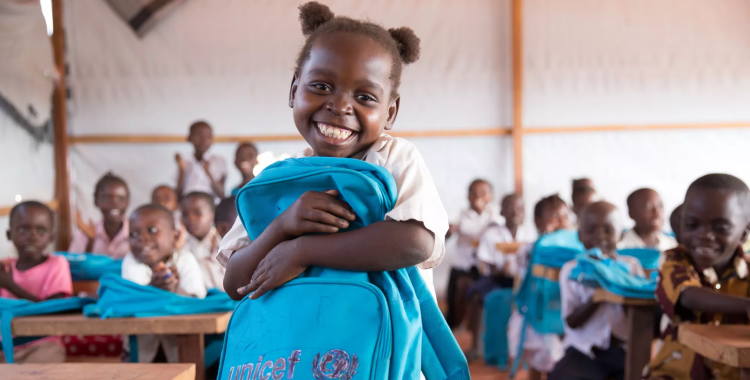According to the latest report from the DR Congo Education Group - a coordinating group of organisations providing emergency education services, including Save the Children - around 17 per cent of schools in North Kivu are closed due to the escalation of the conflict that has occurred this year, the group explained.
When fighting between the army and the March 23 Movement (M23) began in January, 1.3 million students were enrolled in the school year in North Kivu, but “attendance has dropped significantly” due to ongoing clashes, the NGO explained.
"Currently, 775 schools are closed across North Kivu, with many converted into shelters for displaced families. The eastern provinces of North Kivu and South Kivu [provinces in the east] are home to more than 4.6 million displaced people," the NGO explained.
In addition to missing out on vital education, children who are out of school in North Kivu are at grave risk of violence, including sexual violence, and recruitment by armed groups, Save the Children said.
"In the last two weeks of February alone, 895 cases of rape were recorded in the region - on average, more than 60 per day - including against children," according to United Nations data cited by Save the Children.
Another risk is explosives in fields near villages and schools, he stressed.
According to Save the Children, the conflict in the DR Congo has created one of the world's largest humanitarian crises, with around seven million people displaced, including at least 3.5 million children, and more than 26 million people in need of humanitarian assistance in this neighboring nation of Angola.
"According to the UN, around 80,000 people have fled armed conflicts to neighboring countries since January," he said.
According to the NGO's statement, the entity "began working in eastern DR Congo in 1994, and is currently working with 13 local partners, as well as international partners and government authorities, to provide critical support for health, nutrition, water, sanitation and hygiene, child protection and education for children and their families."
The DR Congo accuses neighboring Rwanda of supporting the M23 to gain control of the eastern part of the country and thus have greater access to precious natural resources, such as coltan, which are essential for the global technology industry.
The Rwandan government claims that Tutsi communities in the eastern part of the neighboring Democratic Republic of Congo, the same ethnic group that suffered a genocide in Rwanda in 1994, are under constant attack by Democratic Congolese forces.







